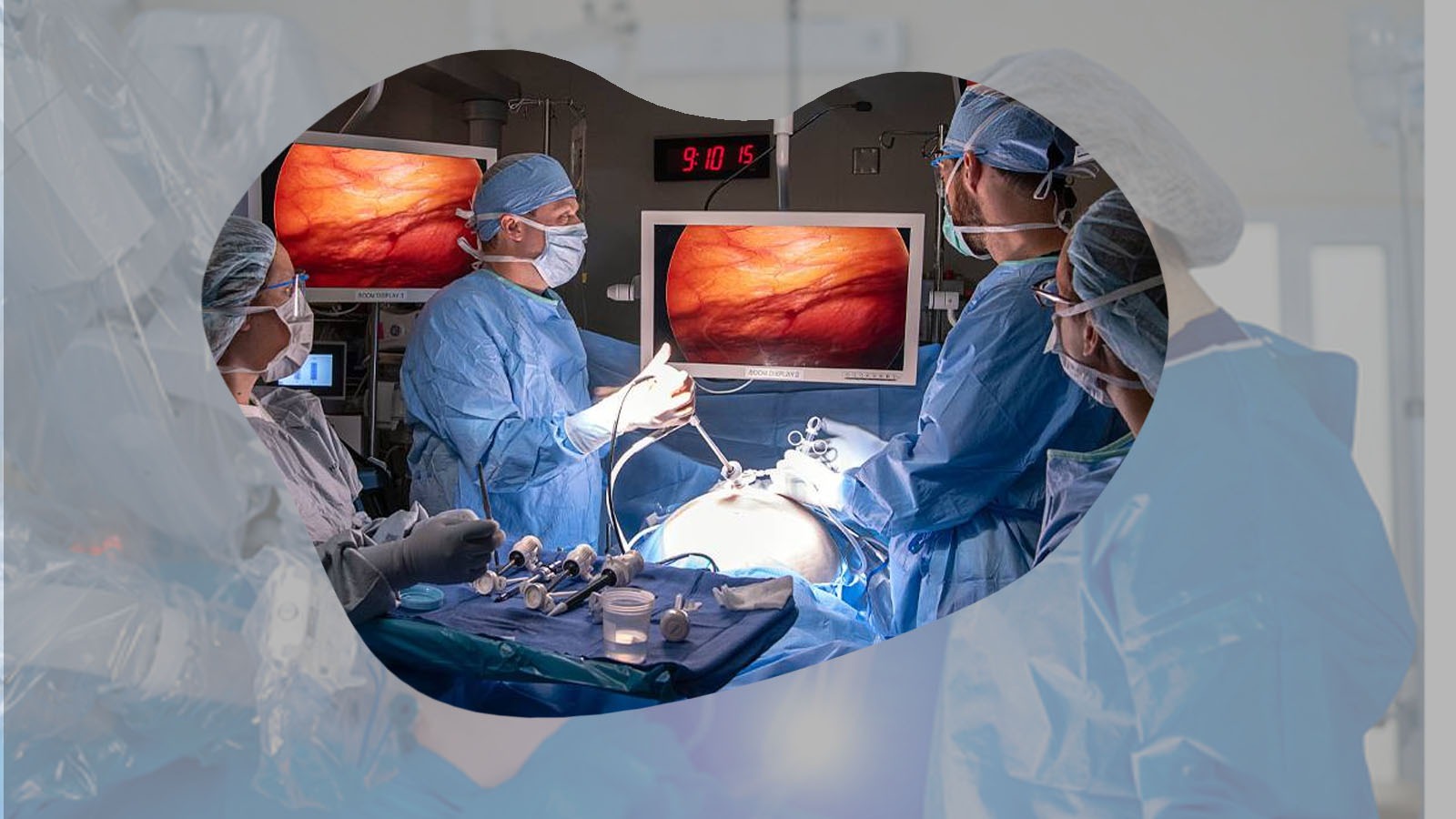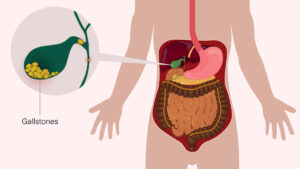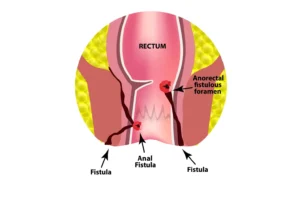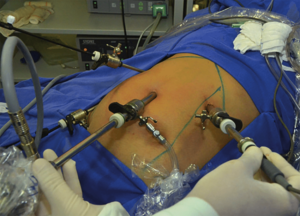Gall bladder stones, or gallstones, are solid particles that form in the gall bladder, a small organ located beneath the liver. Composed mainly of cholesterol or bilirubin, these stones can obstruct bile flow, leading to discomfort, pain, and potential complications if untreated. For patients with gallstones, dietary adjustments can play a crucial role in managing symptoms and promoting overall health. Dr. Pallab Saha, a well-respected surgeon with extensive experience in laparoscopic surgery, emphasizes the importance of adopting specific dietary habits to help manage gall bladder stones effectively.
In this article, we’ll explore how dietary changes can assist in gall stone management and alleviate symptoms, offering practical guidance to improve digestive health.
1. Prioritize High-Fiber Foods
Fiber aids digestion and helps prevent the formation of gallstones by facilitating smooth bile flow and regulating cholesterol levels.
- Whole grains: Foods like brown rice, oats, and whole wheat are rich in fiber, which promotes satiety and supports gall bladder function.
- Fruits and vegetables: Incorporate apples, berries, oranges, leafy greens, and carrots into your meals. These high-fiber foods can reduce cholesterol levels in bile, lowering the risk of gallstone formation.
- Legumes and beans: Lentils, chickpeas, and kidney beans provide both fiber and plant-based protein, ideal for those managing gallstones.
2. Opt for Healthy Fats in Moderation
The gallbladder’s role is to release bile, which aids in digesting fat. While a high-fat diet may exacerbate gallbladder symptoms, some healthy fats are beneficial in moderation.
- Olive oil and nuts: Monounsaturated fats, found in olive oil, almonds, and avocados, are easier to digest and less likely to trigger gallbladder pain.
- Avoid trans fats and processed oils: Minimize or eliminate foods containing trans fats (found in processed snacks, fried foods, and pastries) as they increase cholesterol, a primary contributor to gallstone formation.

3. Increase Intake of Vitamin C and Magnesium-Rich Foods
Certain nutrients have been associated with a reduced risk of gallstones due to their role in breaking down cholesterol.
- Vitamin C: Essential for cholesterol metabolism, vitamin C may help prevent gallstone formation. Incorporate citrus fruits like oranges, lemons, and strawberries, or consider supplements if necessary.
- Magnesium: Magnesium promotes bile production and prevents gallstone crystallization. Foods rich in magnesium include spinach, bananas, almonds, and whole grains.
4. Limit Sugar and Refined Carbohydrates
Diets high in refined sugar and carbohydrates are linked to gallstone development. Limiting these can improve bile quality and reduce symptoms.
- Reduce added sugars: Excessive sugar intake leads to increased cholesterol in bile. Avoid sugary drinks, desserts, and sweets.
- Choose complex carbohydrates: Instead of white bread, pasta, and other refined carbs, select whole grains, fruits, and vegetables to regulate blood sugar and prevent excessive bile production.

5. Maintain a Consistent Meal Schedule
Skipping meals or fasting for long periods can lead to bile buildup and gallstone development. Eating at regular intervals aids in bile flow and gall bladder health.
- Smaller, frequent meals: Aim for balanced, smaller meals throughout the day to keep bile moving and reduce the risk of stone formation.
- Avoid late-night eating: Try to eat your last meal several hours before bed to allow proper digestion and reduce the likelihood of discomfort.
6. Stay Hydrated
Water plays a key role in digestive health and helps dilute bile, which can prevent gallstone formation. Hydration is especially important for those looking to manage or prevent gallstones.
- Drink adequate water: Aim for at least 8 cups of water a day to support digestion and avoid bile stagnation.
- Limit caffeine and alcohol: While moderate coffee consumption may benefit some with gallstones, excessive caffeine or alcohol can exacerbate gall bladder issues.

7. Avoid High-Cholesterol Foods
Cholesterol-rich foods increase the risk of gallstone formation, as cholesterol is one of the main components of gallstones.
- Limit red meat and processed meats: Red meat, bacon, and sausage are high in cholesterol and can contribute to stone formation.
- Choose lean proteins: Opt for chicken, turkey, fish, and plant-based protein sources such as beans, lentils, and tofu.
When to Consider Medical Intervention
While dietary changes can alleviate symptoms and may reduce the risk of gallstones, they may not eliminate existing stones entirely. If you experience symptoms such as intense abdominal pain, fever, jaundice, or nausea, it’s essential to seek professional medical advice.
Dr. Pallab Saha and his team offer comprehensive assessments and treatment options, including minimally invasive laparoscopic surgery for gall bladder stones. This procedure can provide effective and lasting relief, especially when combined with dietary management.

Final Thoughts
Gallstone management benefits greatly from a proactive approach, with dietary changes serving as a supportive measure alongside medical treatment options. Integrating high-fiber foods, moderate healthy fats, vitamin-rich choices, and reducing processed foods can make a significant difference in digestive comfort and gall bladder health. If you need personalized advice or treatment options for gallbladder stones, don’t hesitate to reach out to Dr. Pallab Saha’s clinic for expert guidance and care.
By adopting these dietary changes, patients can better manage their symptoms and support their overall health, reducing the potential for gallbladder-related complications in the future.







Every line you’ve written feels like a carefully placed step on a path that leads toward greater understanding.